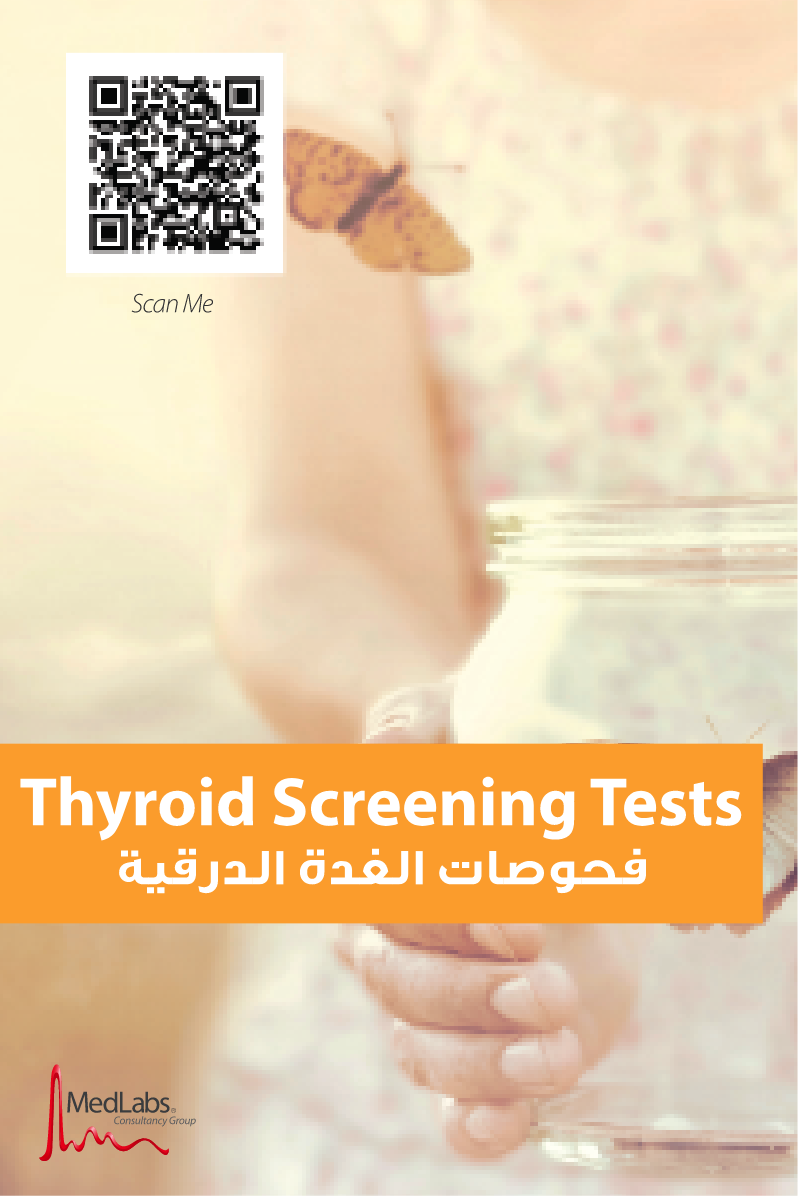
What is the thyroid gland?
The thyroid is a small gland just below the Adam’s apple. This gland is very important in controlling the body’s metabolism. It does this by producing thyroid hormones (T3 and T4) that travel through the blood to all parts of the body—telling it how fast to work. The production of these hormones is under the influence of another hormone, TSH, which is produced by the pituitary gland. The thyroid gland might produce too many hormones (hyperthyroidism) or too few hormones (hypothyroidism).
Symptoms of Hyperthyroidism
- Fatigue
- Muscle weakness
- Appetite change
- Weight loss
- Diarrhea
- Nervousness
- Heat intolerance
- Increased perspiration
- Insomnia
- Light or missed menstrual period
- Bulging of the eyes
- Skin changes
- Hair loss
Symptoms of Hypothyroidism
- Feeling lethargic or tired
- Muscle cramps
- Dry hair & hair loss
- Weight gain
- Constipation
- Feeling depressed
- Feeling cold/cold intolerance
- Memory loss
- Slow heart rate
- Abnormal menstrual flow
- Low level of T3 & T4
- High level of TSH
What causes hyperthyroidism?
- The entire thyroid gland may be overactive (excess hormone).
- One or more lumps in the gland may be overactive.
- The gland may be inflamed (thyroiditis).
What causes hypothyroidism?
- Thyroid surgery or radioactive iodine treatment.
- Being born without a working thyroid gland.
- An inflammation of the thyroid gland (thyroiditis).
How are hyper and hypothyroidism clinically diagnosed?
- Patient history and physical appearance
- Examining the amount of thyroid hormones in the blood:
- T3 and T4
- Thyroid-stimulating hormone (TSH)
- Thyroid antibodies
MedLabs Suggested Thyroid Panel
- Free T3
- Free T4
- TSH
Additional (Optional) Tests:
- TPO
- Thyroid Microsomal Antibodies
- Thyroglobulin Antibodies
- TSH Receptor Antibody
- Thyroglobulin
FAQ
What is the difference between hyperthyroidism and hypothyroidism?
Hyperthyroidism leads to an increase in hormone production, which causes weight loss and rapid heartbeat, while hypothyroidism slows down body processes, leading to weight gain and fatigue.
Are there foods that affect thyroid function?
Some foods such as soy, cabbage, and kale may affect absorption if consumed in large amounts. It is recommended to consult a nutritionist if a thyroid disorder is present.
Can hyperthyroidism be cured?
It depends on the type of disease. Some cases, such as temporary thyroiditis, can be cured, while chronic conditions like Hashimoto’s disease require lifelong treatment.
Do thyroid diseases affect fertility or pregnancy?
Yes, thyroid disorders can affect ovulation and the menstrual cycle, and may cause complications in pregnancy or childbirth if not properly controlled.
Are thyroid diseases hereditary?
Yes, some thyroid disorders, such as Hashimoto’s disease and Graves’ disease, can be inherited, especially if they are present in a family member.
Does weight increase after thyroid removal?
Yes, weight may increase after thyroid removal, but this does not necessarily happen to everyone. It depends on several factors, including whether the thyroid was fully or partially removed, and whether the patient is receiving appropriate hormone replacement therapy.





